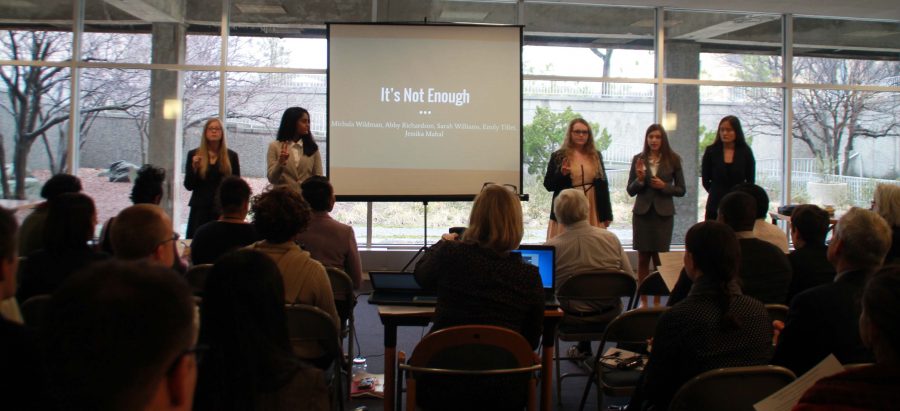The Revolution of the SOL
AP Capstone students presenting research at Department of Education.
Every Fairfax County Public Schools student is familiar with the Standards of Learning (SOL) assessments at the end of the school year. Students from third grade and up are herded into rooms, sit for hours staring at a computer screen, and take a test showing the county how well they understand the material from whatever class the student has decided to take. What most students don’t know, however, is the way SOL assessments are done is about to be revolutionized.
FCPS recently reengineered the Assessments Team at their central office, incorporating teachers from every grade level to provide a variety of perspectives and opinions. The new Assessment Team has begun to discuss eliminating SOL assessments as a whole. What the new Assessment Team wants to do is replace the SOL with a project, much like the capstone project juniors and seniors take part in every year at Oakton. The intention of the capstone project is to have students identify a problem in the world, formulate an in-depth research question, and write an argumentative paper on their findings. The purpose of reinforcing this idea of project-based learning is, hopefully, to encourage students to learn how to think critically, use more advanced language, and understand how to collaborate more effectively with their peers. These are all qualities that hold a valuable position in the workplace, but have been pushed aside in favor of multiple choice tests and rote memorization.
Now, you might think, “How am I supposed to balance final exams, projects in all my individual classes, and do this final project?” Well, the Assessments Team already has an answer for that. The goal of the fourth grade to twelfth grade capstone project is not only to replace the SOL test, but also to replace all final exams and projects. This measure is intended to allow students to focus all of their energy into creating a final product they are proud of, rather than on multiple projects with mediocre payoff.
The second, and perhaps most exciting part of the new Assessment Team’s plan, is their need for student representatives. Members of the Assessment Team realize that a huge problem with developing all of these new assessment ideas is they have no student input to understand the impact these new ideas will have on the students. This part of the plan, however, is still under review, so FCPS won’t be able to accept any applications for student representatives for another few years.
Although students loathe the SOL and what it represents, these new changes implemented by the Assessment Team at FCPS will hopefully teach students to value critical thinking skills over a number appearing on a scantron.



